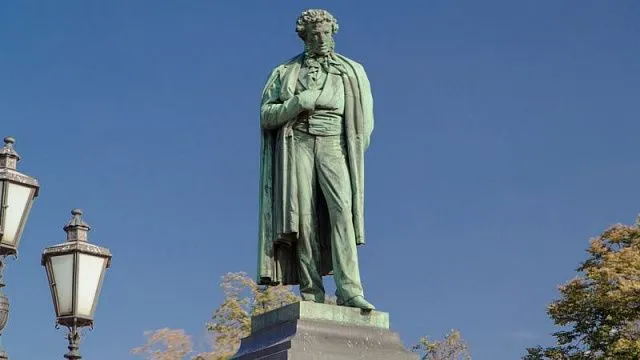
A three-day academic conference titled “Between history and fiction, document and prophecy. Marking the 200th anniversary since A. S. Pushkin wrote the people’s tragedy ‘Boris Godunov'” has concluded at the Russian Institute of Theatre Arts (GITIS).
The event, which became a significant occasion for the academic and theatre community, opened across two venues – at GITIS and in the Rumyantsev Hall of the Russian State Library.
On the first day, participants offered unexpected angles for analysing the work and its cultural context. Special interest was drawn by the presentation of actor Evgeny Tsyganov. The artist shared his memories of the so-called method of slow reading taught by director Pyotr Fomenko, revealing a professional insight: when working with poetic text, it is important first to feel its rhythm, then to fill it with the circumstances of the role, and only afterwards – with the relationships with the partner.
People’s Artist of the Russian Federation and actor of the Maly Theatre Mikhail Filippov, in turn, shared his reflections on Pushkin’s choice of historical subject and on why the theme of the tragedy remains relevant today.
The conference programme also reflected the perspective of art historians. Doctor of Art History Aleksander Chepurov and Candidate of Art History Olga Galakhova analysed how the complex internal conflicts of the characters found stage embodiments in productions by Vsevolod Meyerhold, Pyotr Fomenko, Yuri Lyubimov and Declan Donnellan. Candidate of Art History Zhanna Panova introduced the audience to a lesser-known page of the plot’s history – Schiller’s unfinished play about Dmitry, which became the basis for the libretto of Antonín Dvořák’s opera.
The second day of the conference took place in the reading room of the GITIS library and was dedicated to the stage incarnations of the tragedy in drama and opera. Doctor of Historical Sciences Pyotr Gordeev spoke about Fyodor Chaliapin’s performance in Modest Mussorgsky’s opera in 1918. Candidate of Philosophical Sciences Timofey Kovalenko highlighted productions of “Boris Godunov” in 1937 in provincial theatres.
The concluding day of the conference opened with an in-depth philological analysis.
A historical perspective was complemented by the presentation of Candidate of Historical Sciences Marina Rakitina (a staff member of the Lecture Department of the Moscow Kremlin Museums), who showed the audience photographs of museum exhibits that belonged to Tsarevich Dmitry.
Summing up the conference, Candidate of Art History and Associate Professor of the Department of Russian Theatre History Olga Galakhova emphasised that the organisers had deliberately invited specialists from different fields – art historians and literary scholars, historians, political scientists, economists, and experts in public administration – to expand the usual boundaries of academic conferences.
“What is the practical value? Science, as Boris Godunov said in Pushkin’s words, ‘shortens the experience of swift-flowing life’. By studying ‘Boris Godunov’ comprehensively and diversely – historically, politically, aesthetically – we gain a better understanding of both the past and the present,” she concluded.
Researchers from Moscow, St. Petersburg, Krasnodar, and Saratov, as well as scholars from ten institutions, took part in the conference.
Photo: HyperlapsePro / iStock
Самые
актуальные новости стран БРИКС https://tvbrics.com

